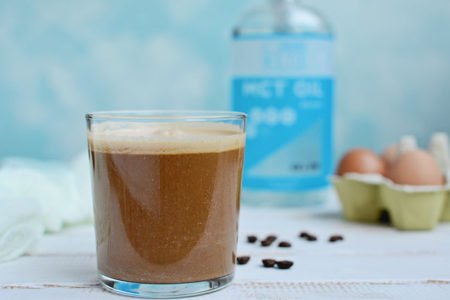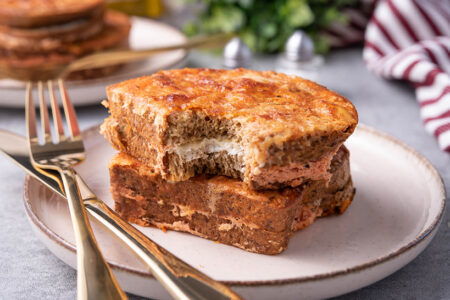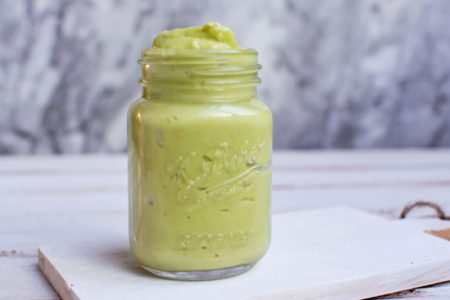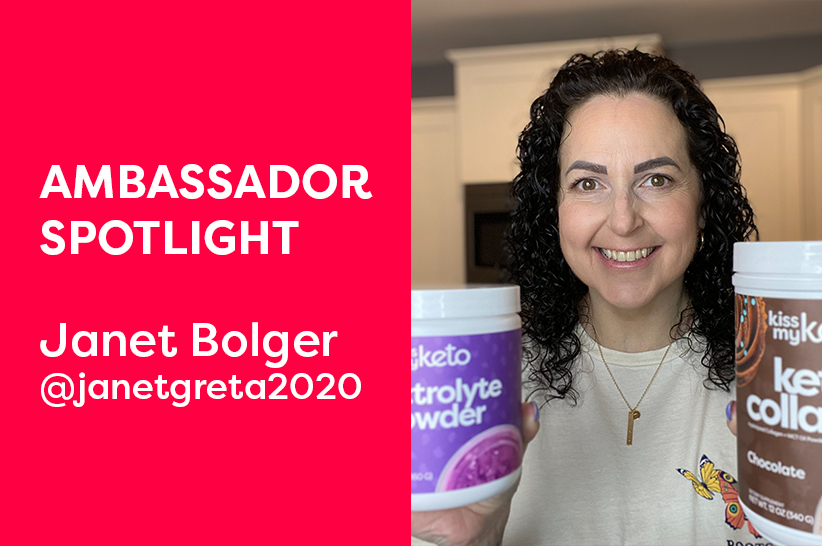Juicing has become a popular practice over the past couple of years. More and more people are liquefying their fruits and veggies to detox, get more nutrients, and to lose weight. But does juicing for weight loss have any advantage over other weight loss methods or is this yet another hype?
In this article, we explain what juicing is and share what nutrition and diet experts have to say about juicing for weight loss. We also explain if there are any other health benefits from juicing and offer 4 delicious juice recipes in case you decide to use this popular approach to health and nutrition.
What Exactly Is Juicing?
Juicing is the process of extracting juice from fruits and vegetables. There are many different methods of juicing: from simply squeezing out the juice with your hands or squeezer to making juice with motor-driven juicers, blenders, and other devices.
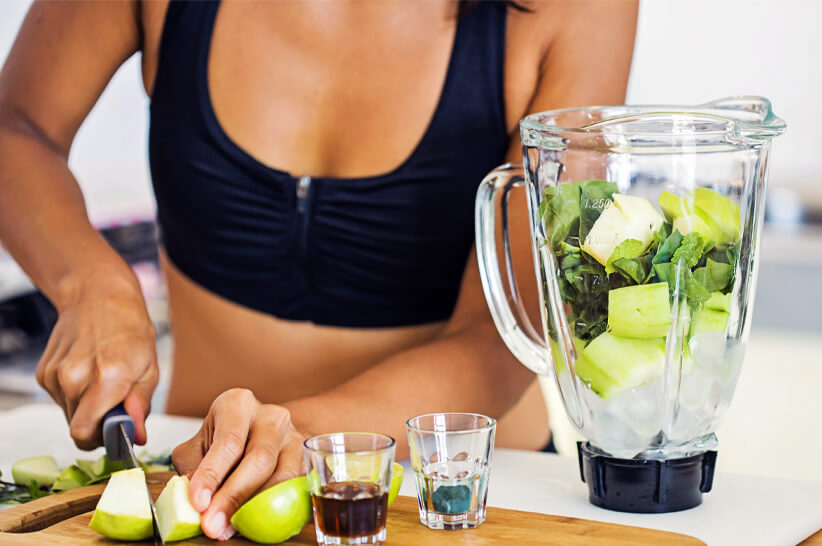
Most fruit and vegetables can be used to make juice. The process typically removes fiber but leaves all the vitamins, minerals, and antioxidants from the raw fruit or veggie.
Juicing may also be another way of referring to a juice fast, which is a diet that involves consuming only juices and abstaining from all solid food for a short period of time.
Is juicing a good way to lose weight?
Also known as juice fasts, cleanses, detoxes, and juice diets, many now look at juicing as a quick-fix weight-loss option. However, juicing for weight loss comes with its fair share of controversy.
Juice cleanses usually involve consuming only juice for a certain period, typically 3-10 days 1. This is obviously very restrictive, so it’s no wonder health and nutrition professionals are skeptical about juicing.
Diana Clelland, RD, CDE for example, states:
“I don’t recommend juicing because juice is very high in sugar, whereas eating the whole fruit provides fiber, which helps with fullness and is better for blood sugar levels and heart health.”
To see how this is the case, just consider the differences between whole oranges and orange juice:
An average-sized orange has around 60 calories, 15 g of carbs, and 3 g of fiber. A cup of raw orange juice, on the other hand, has 112 calories, 26 g of carbs, and only 0.5g of fiber 2.
Lauren Gustafson, MS, RD, LDN, CPT also does not recommend juicing for weight loss for the following reasons:
- It is not sustainable – no one can healthfully live off of a fruit and vegetable juice-only diet. Some essential vitamins (specifically A, D, E, and K) are fat-soluble, meaning you can only absorb them if you have some fat in your diet.
- It cuts out two important food groups (protein and fat).
- You’re missing out on one of the most important parts of the fruit or vegetable (fiber) since it is removed during the juicing process.
- Because of the lack of fiber, you are drinking straight sugar- this sugar is digested very quickly into your body and can stimulate hunger a lot sooner than if you had a meal high in protein, healthy fats, and fiber.
- It is very easy to ingest too many calories than your body needs when your meals are in liquid form
Excess sugar in the diet – regardless of the source – can lead to fatty liver, obesity, diabetes, hypertension, cardiovascular disease, and stroke.
How much weight can you lose juicing?
There are claims that you could lose 10 pounds or more after just one week on this diet; however, all supposed evidence is purely anecdotal.
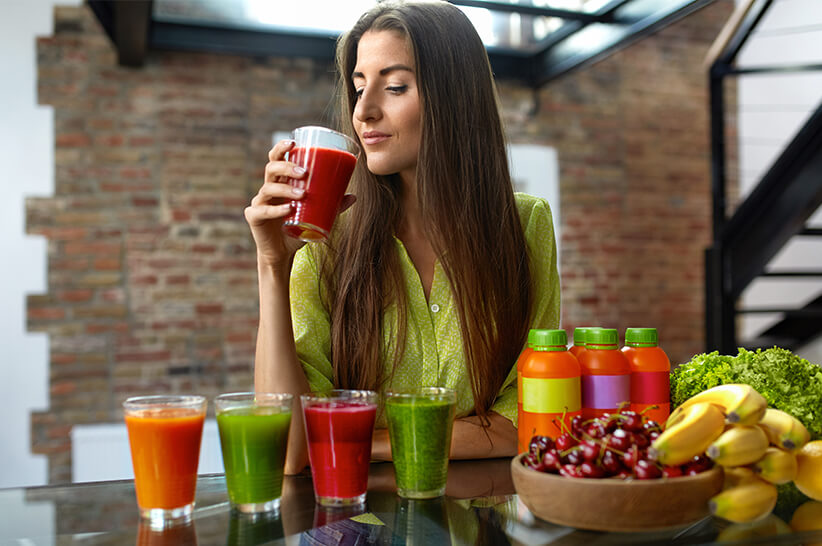
But where research evidence is concerned, there’s one preliminary study in which participants lost 1.2 -1.7 kg after only 3 days on a juice fast, and most managed to keep the weight off by the end of the 17 day study 3. The researchers commented that the juice cleanse induced changes in gut bacteria, which was associated with weight loss.
However, Staci Gulbin, MS, Med, RD explains that:
“Most weight loss that comes from juicing is based off the low-calorie intake of such regimens.
And although there is some preliminary research showing the potential for a juicing regimen to alter the microbiome in a positive way to aid weight loss, these studies are few and far between and have very small sample sizes. So, until research confirms otherwise, juicing should not be relied upon as a long-term weight loss regimen.”
Other health benefits of juicing
Not everyone jumps on the juicing bandwagon to lose weight. Some use juice cleanses to detox or to get more nutrients. Some of the possible, but not yet proven benefits include:
Hydration
Staying hydrated can be tough for some, but juicing makes this a whole lot easier. Drinking 5-6 glasses of fruit and vegetable juice throughout the day is sure to keep you well-hydrated. And when you’re well-hydrated, you’ll have more energy and better, glowing skin.
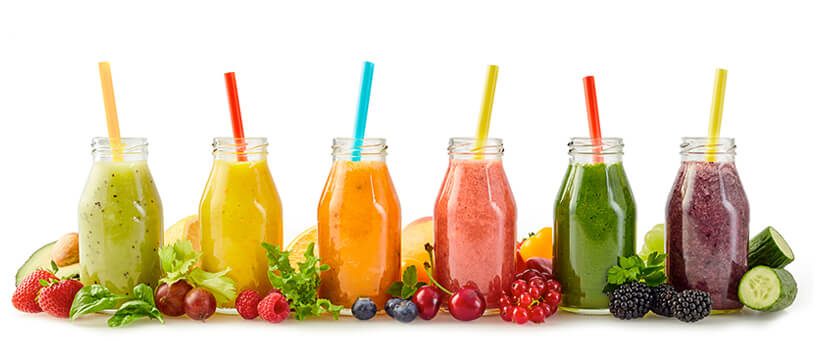
Gut health
The study mentioned earlier found that a juice diet improved the balance of gut bacteria, increasing the number of bacteria that ferment fiber, which results in production in protective short chain fatty acids. This reduces the number of bacteria associated with increased body weight.
Less inflammation
Providing that a short juice fast really does improve gut health, you may experience less inflammation following a juice cleanse 4. That’s because a good gut microbiome leads to a healthier immune system and subsequently lower levels of inflammation.
4 Best Keto-Friendly Juicing Recipes for Weight Loss
1. Green Spinach Lemonade
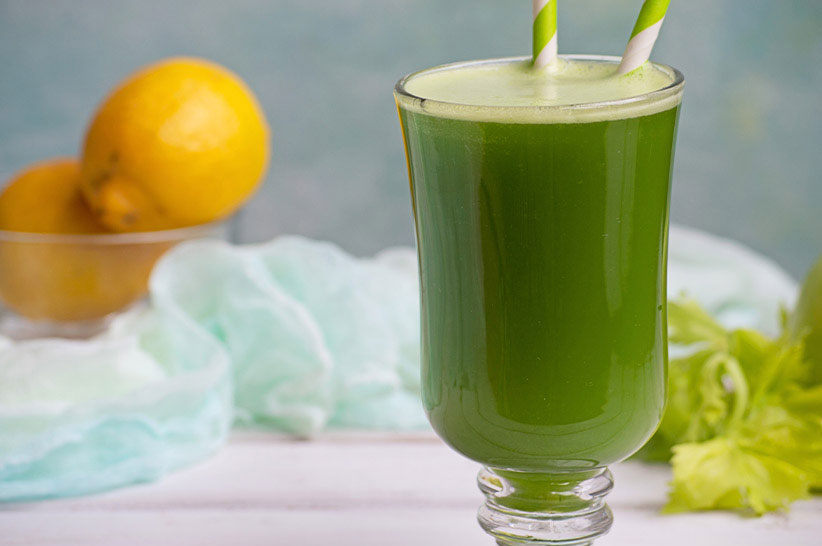
A lemonade drink made with additional green ingredients like spinach, celery, and kale may be exactly what you need to get more greens and vitamin C in your diet. The added ginger and stevia give this drink a perfect combo of spicy and subtly sweet.
2. Carrot Apple Juice
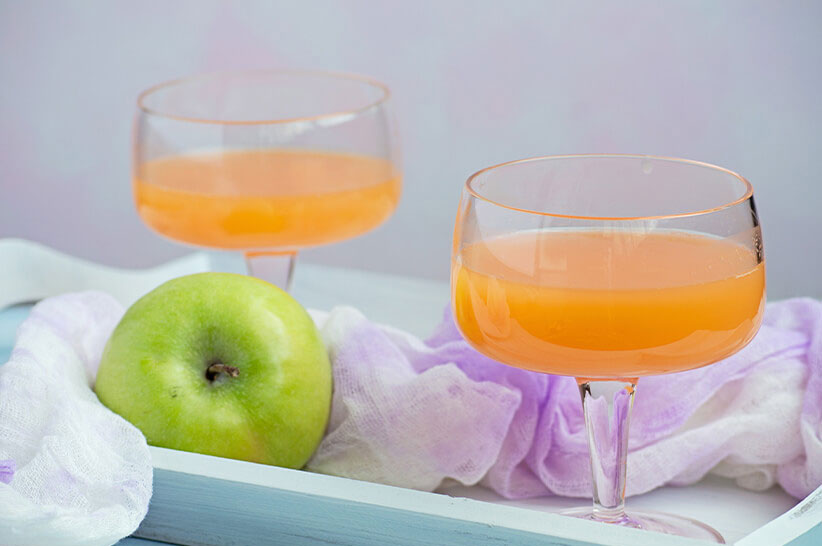
Sweet carrots and tangy green apples pair wonderfully in this refreshing and full-bodied drink. And for a touch of spicy and tropical flavors, this juice should also include raw ginger and pineapple extract. The added apple cider vinegar enhances the flavors but also helps with blood sugar control.
3. Green Detox Juice
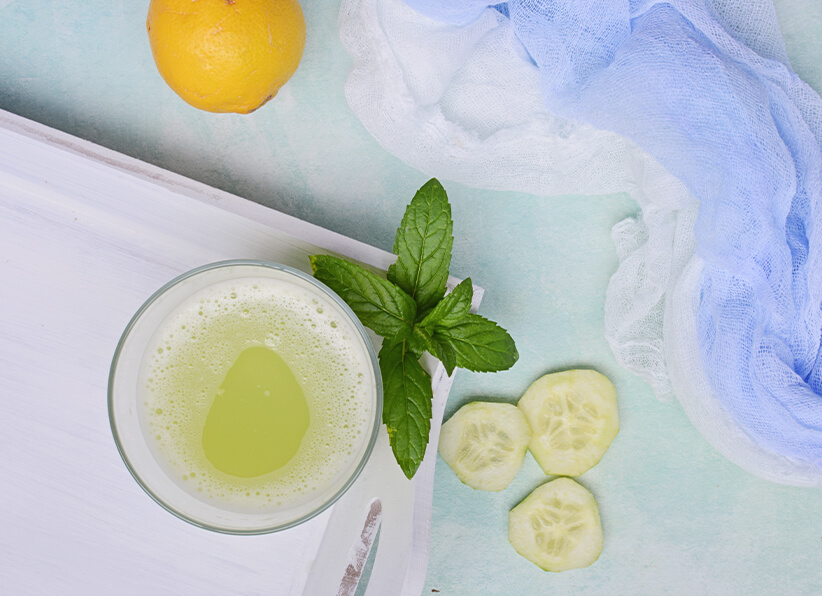
Hydrating, electrolyte-rich cucumbers, nutrient-dense kale, refreshing lemonade, and antioxidant-rich celery stalk are combined in this detoxing green juice. Sweetened with a bit of stevia and flavored with ginger, you’ll definitely be able to enjoy this health-boosting drink.
4. Lemon Apple Cider Juice
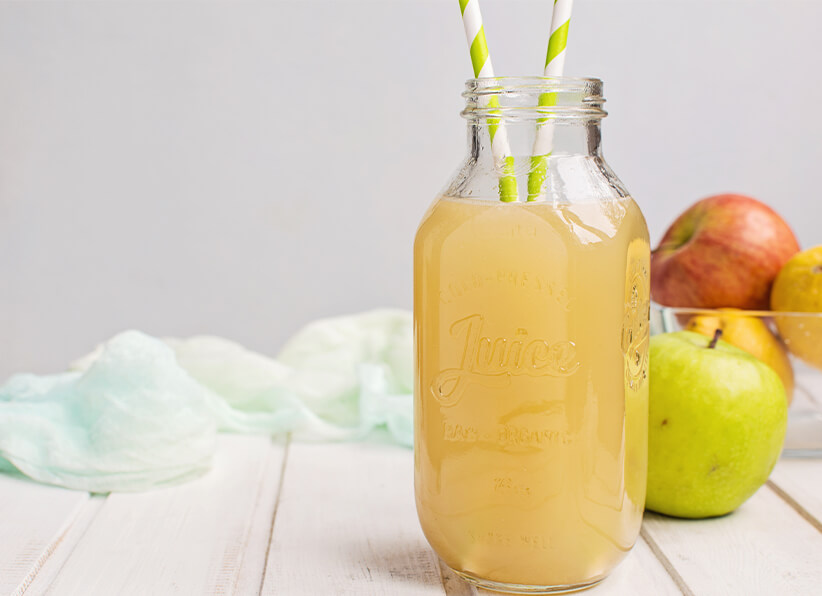
Whenever you start craving a refreshing, cold drink on hot summer days, make this lemon and apple cider vinegar juice. It’s sweetened with stevia and made with cucumbers for extra hydration. Make it ahead and keep it in the fridge or thermos flask to keep cool.
If you want to see more keto-friendly drink recipes, click here.
How Long Should I Use Juicing for Weight Loss
Most health and nutrition professionals would probably deter you from even considering juicing for weight loss. However, many people still believe in this method as a quick fix. In that case, it’s best to juice for only short periods of time to play it safe.
And with short, what that usually means is from a couple of hours to up to three days. Longer fasts of up to a couple of weeks at a time are usually not recommended, especially if you have an underlying health condition. That’s because fasting for a long period of time can lead to hypoglycemia, dehydration, electrolyte imbalances, and other complications.
Conclusion
Skipping solid food and drinking juice for up to several days and even weeks at a time is a popular weight-loss method, but one that’s not recommended by dietitians and health experts. Juicing for weight loss is not sustainable, can deprive you of important nutrients, lead to excess sugar intake, won’t help you feel full, and may even be dangerous for your health.
Still, there may be some health benefits to short-term juicing such as improvements in gut microbiome, but we’re still waiting for studies to prove this is truly the case. In case you’re still considering juicing for weight loss, make sure to juice for only short periods of time to play it safe and consider other, more sustainable options for safe and reliable weight loss.
Takeaways
- Juicing is a popular weight-loss method but that is not proven to be effective.
- Diet and health experts don’t recommend juicing to lose weight.
- Juicing can be a good way to add nutrients to your usual diet.
- If you want to consider juicing, short cleanses are safer than longer ones.




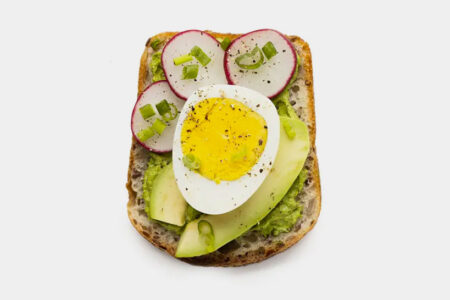
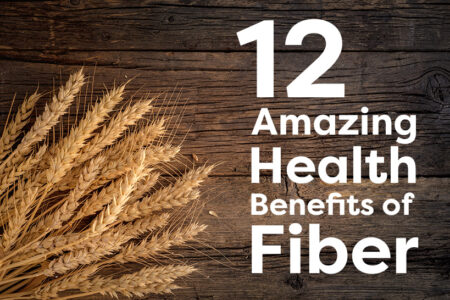


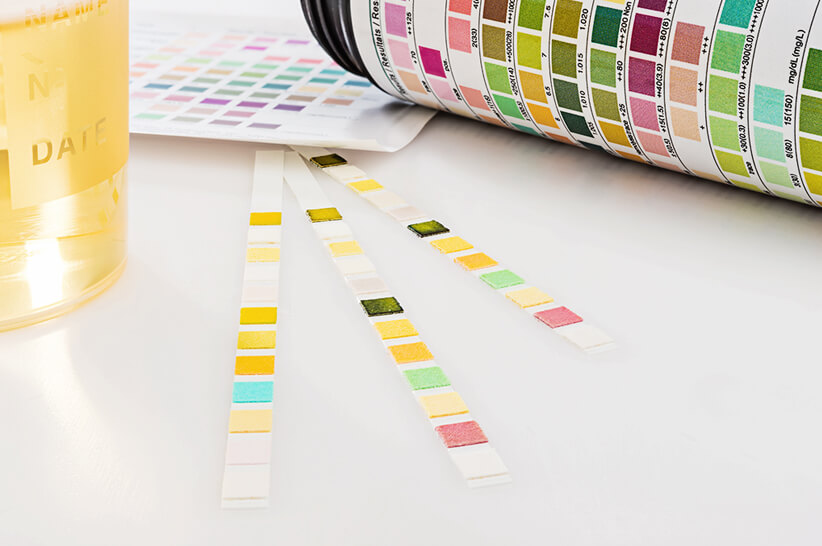

![Juicing for Weight Loss: Everything You Need to Know [Plus Recipes]](/wp-content/uploads/2019/08/Juicing-for-Weight-featured-image.jpg)

